News
-
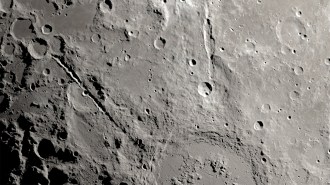 Planetary Science
Planetary ScienceThe moon’s two grand canyons formed in less than 10 minutes
Two gargantuan canyons on the moon were carved by a hailstorm of rocks — and that’s good news for future lunar astronauts.
-
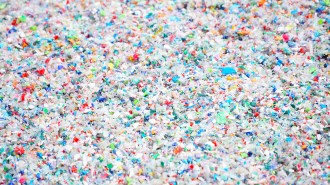 Health & Medicine
Health & MedicinePlastic shards permeate human brains
A study of microplastics and nanoplastics in brains shows an astonishing increase over time.
-
 Anthropology
AnthropologyAn African strontium map sheds light on the origins of enslaved people
While genetic tests can reveal the ancestry of enslaved individuals, strontium analysis can now home in on where they actually grew up.
-
 Health & Medicine
Health & MedicineA new kind of non-opioid painkiller gets FDA approval
The new drug, called Journavx, is a non-opioid for treating short-term moderate to severe pain.
-
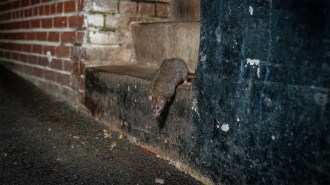 Animals
AnimalsHotter cities? Here come the rats
Well, rats. A study of 16 cities shows that higher ambient temperatures and loss of green space are associated with increasing rodent complaints.
-
 Earth
EarthAncient rocks reveal when rivers began pouring nutrients into the sea
Rivers began pumping weathered material into the sea about a billion years after Earth formed, suggesting continents may have gotten an early start.
-
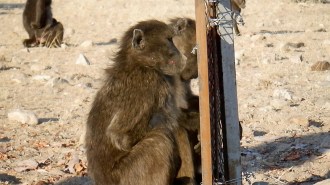 Animals
AnimalsWild baboons don’t recognize themselves in a mirror
In a lab test, chimps and orangutans can recognize their own reflection. But in the wild, baboons seemingly can’t do the same.
-
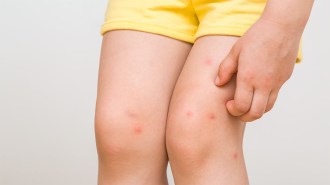 Neuroscience
NeuroscienceScratching an itch is so good, and so bad
The motion kicks off inflammation but may also combat harmful bacteria
-
 Particle Physics
Particle PhysicsA tiny neutrino detector scored big at a nuclear reactor
A compact method of detecting neutrinos provides new tests of physics theories and could lead to new reactor-monitoring methods.
-
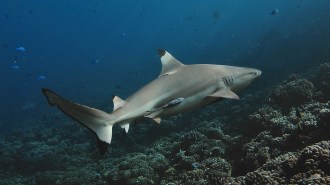 Animals
AnimalsFeeding sharks ‘junk food’ takes a toll on their health
Many blacktip reef sharks in French Polynesia are commonly fed by tourists. But the low-quality diet is changing the sharks’ behavior and physiology.
By Jake Buehler -
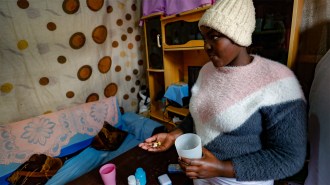 Science & Society
Science & SocietyTrump orders sow chaos in global public health
A recent flurry of executive orders and surprise actions by the Trump administration have roiled WHO, the CDC and the international public health community.
By Meghan Rosen -
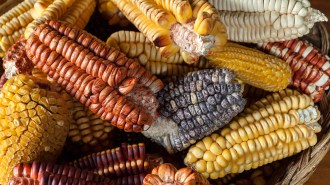 Archaeology
ArchaeologyHere’s how ancient Amazonians became master maize farmers
Casarabe people grew the nutritious crop year-round on savannas thanks to networks of drainage canals and ponds.
By Bruce Bower